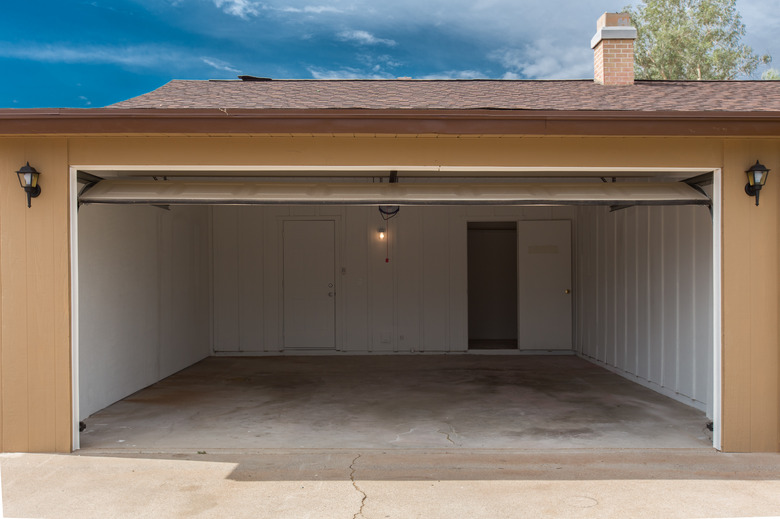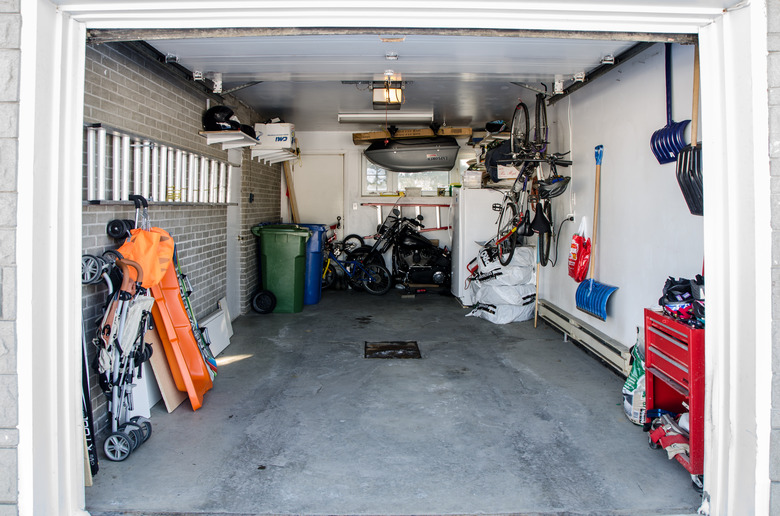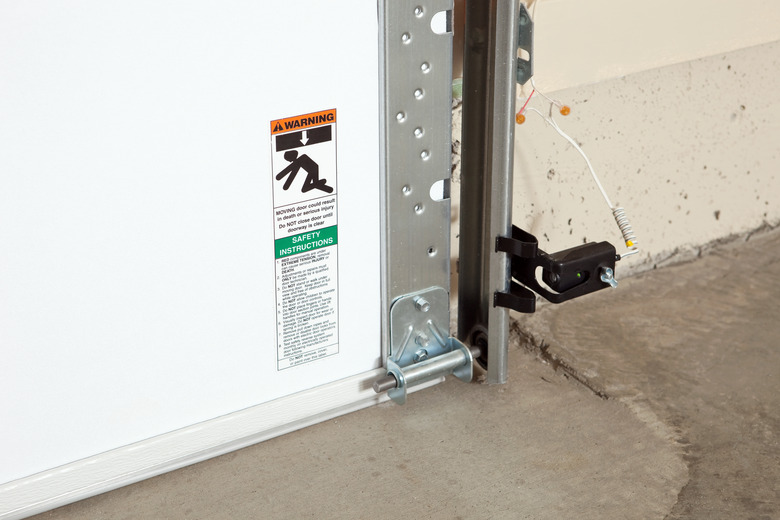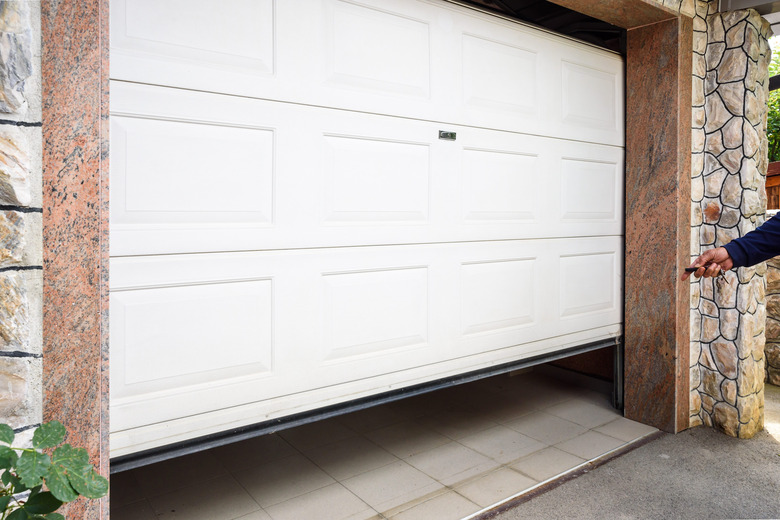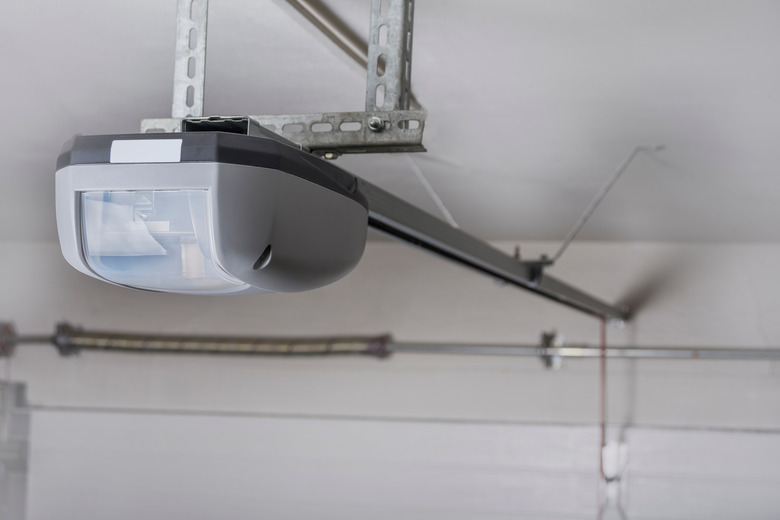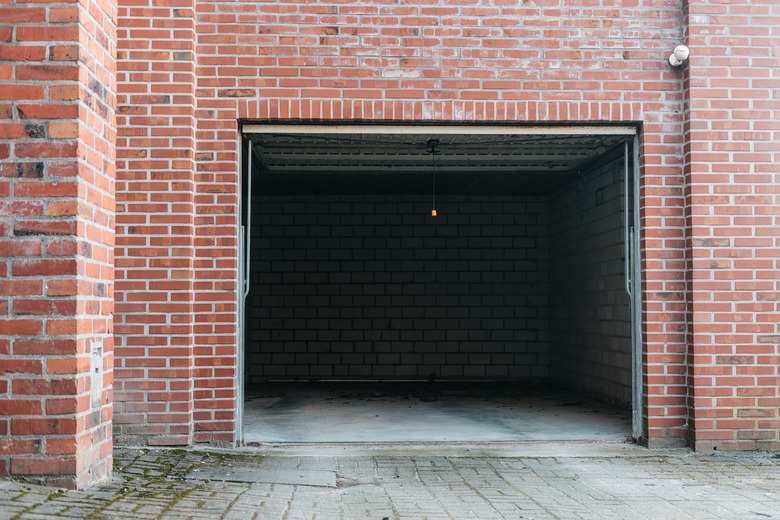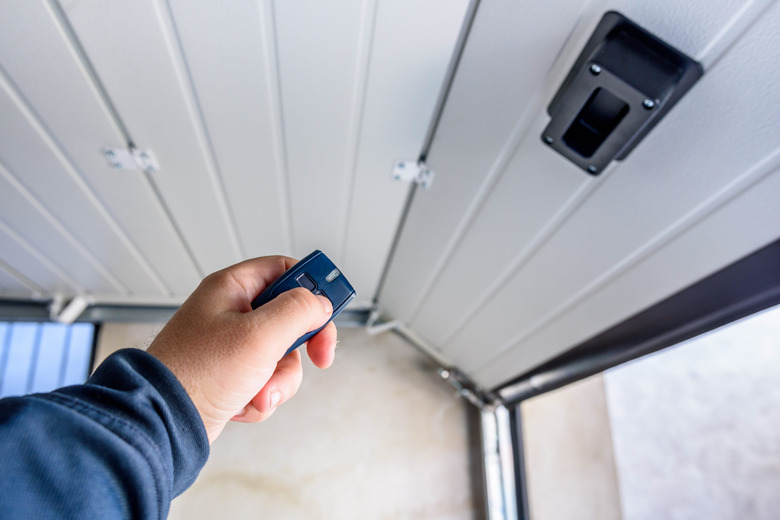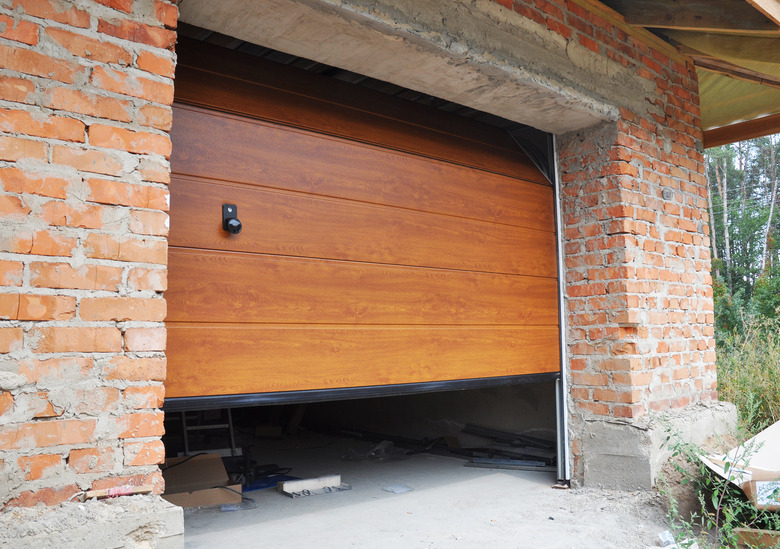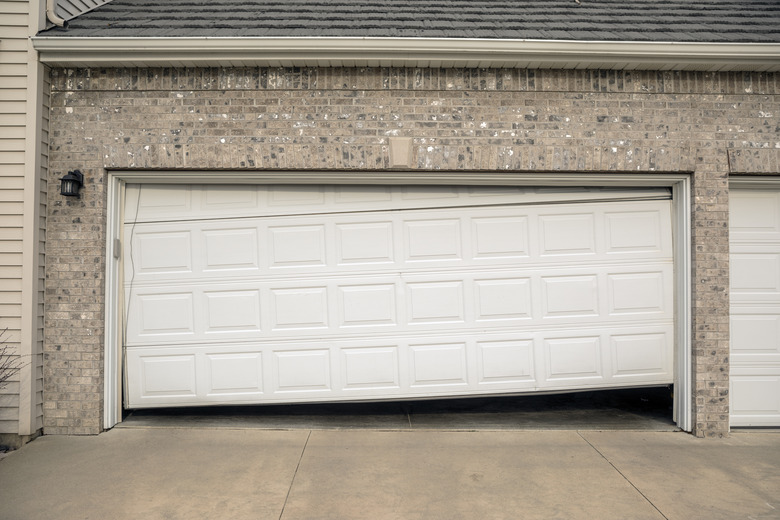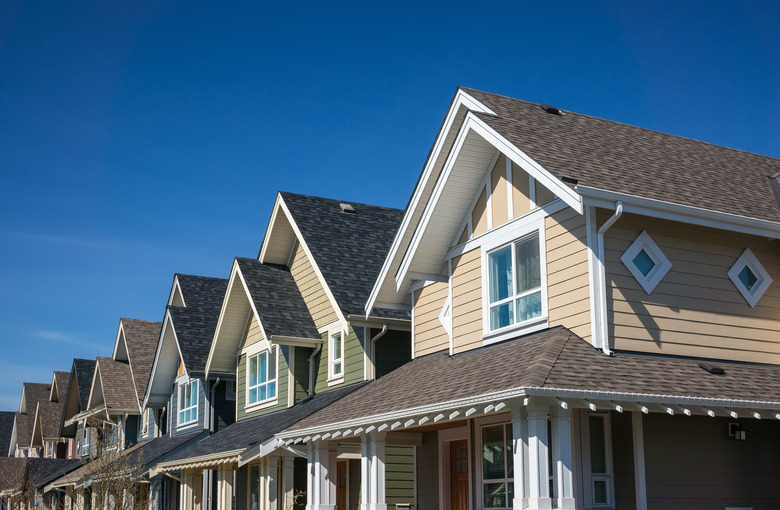11 Reasons Your Garage Door Won't Close
We may receive a commission on purchases made from links.
If your garage door won't close, it's a problem you need to fix sooner rather than later. Leaving the garage door open is a safety hazard for two reasons. One is that depending on why the door stays open, you may have a mechanical issue that could malfunction and drop the door onto someone. It's also unwise to leave your garage door gaping open because most garages afford easy entry into the home itself.
Some problems are easy to resolve yourself, but others may require professional garage door repair. If you need a pro and have to wait a few days to get one, pull the release cord on your garage door opener and close the door manually if you can. This will provide a level of safety and security while you wait for help.
Have a garage door that won't close? Here are 11 common problems that could be causing the issue.
Tip
Before you start troubleshooting and searching for the root of your garage door problem, take a look at the garage door opener itself. If the unit knows there is a problem, you may see a blinking light on it. Count the number of blinks or take note of their duration and then consult your user manual. It's possible the garage door opener is already trying to tell you what's wrong.
1. The Door Is Blocked
1. The Door Is Blocked
This sounds like a no-brainer, but it's still worth mentioning. Garage door openers installed after 1993 include two sensors. Mounted at or close to the ground, these safety sensors emit an invisible laser beam. If the beam is broken, the garage door immediately stops closing. This is a great safety feature that helps ensure that kids, pets, or foreign objects don't get hurt by the closing garage door.
If it won't close, there may be something in the garage door's path. Even if you don't see anything obvious, go take a look at the garage doorway. Sometimes, something as simple as a flap from a recently moved cardboard box or even a cobweb is enough to break the laser beam and prevent proper closing.
2. Your Sensors Are Malfunctioning
2. Your Sensors Are Malfunctioning
The sensors on your garage door are a great safety feature, but sometimes, they need a little TLC. The sensors sit on either side of the garage door and have a laser beam between them, which detects motion or blockages. A common reason for the garage door refusing to close is a dirty sensor, which prevents it from "seeing" the laser beam. If your garage door fails to close even when the doorway is clear, try cleaning the lenses on your sensors. A cotton swab soaked in glass cleaner will remove any dust or debris that may cloud the sensor.
Check the alignment of the sensors as well. They must point directly at one another and be mounted at the same height (usually on the bottom 6 inches of the door). If one of them gets bumped out of alignment, the garage door won't close. You may need to gently realign a shifted sensor. If you have a reason to suspect that the sensors are faulty, replace them rather than trying to somehow override them.
3. The Manual Override Is Engaged
3. The Manual Override Is Engaged
This is another problem that seems obvious but is easy for homeowners to overlook. If you hear the motor on your garage door humming but the door isn't closing, the manual override on your garage door opener may be engaged. The override lets you manually open and close your garage door if the power goes out. Make sure your garage door opener isn't still in manual mode if it doesn't close the garage door.
4. The Door Is Locked
4. The Door Is Locked
For added safety, it's possible to lock your garage door. There are, of course, ways to manually lock the door, but many garage door openers also feature a locking function. This prevents remotes, keypads, and other devices from opening your garage door if you're on vacation or away for some reason. It's possible to activate these lock features even when the door is open, which prevents the door from closing.
Check your opener and make sure you haven't accidentally bumped a lock switch. If the remote has a lock button, press it to unlock the door. Some remotes require you to hold down a button for a few seconds to lock or unlock the door.
5. Door Track Issues
5. Door Track Issues
As they open and close, garage doors run along a metal track. If your garage door won't close, examine these tracks for signs of a problem. If your track looks damaged or misshapen, it can impede the motion of the garage door and prevent door closure. The same issue occurs if the track is coming loose from the wall. Tighten or reshape the track if you can. Otherwise, you'll need to replace it.
Sometimes, a warped track is very difficult to see. The best way to check a track with no obvious signs of damage is with a level. Make sure both sides of the track are straight and completely vertical. You can also check the alignment by pulling the release cord on your garage door opener and sliding the door up and down manually. If your door hits any snags, you should feel it.
You should also check your track for dirt. Even the most meticulous housekeepers don't wipe out their garage door tracks. Over time, dust and debris can build to a level that interferes with the garage door's movement along the track. A good cleaning and a bit of lubrication may resolve your issue.
6. Your Height Adjustment Is Wrong
6. Your Height Adjustment Is Wrong
Not every garage door opening measures the exact same height. When you installed your garage door opener, you or the installer likely had to tell the garage door how far to travel to close all the way. Make the trip too short and your garage door won't close all the way. Make it too long and the door will bounce off the garage floor and quickly raise itself again.
If your settings have somehow changed, you'll need to program the travel distance on your garage door opener again. Although you may need a ladder to reach it, there should be a limit-setting knob or screw that you can adjust. Adjust the travel 1/4 turn and then check the door operation. Continue changing the travel setting in small increments until you get it right.
7. Busted Springs and Cables
7. Busted Springs and Cables
To make opening and closing heavy garage doors easier, they utilize a set of springs and cables. These features control how fast the garage door closes so it doesn't slam shut. The good news is that you can easily see if this is the issue. A quick glance at the garage door springs and cables will tell you if they are broken since the damage is extremely obvious.
The bad news is that you should probably call in a pro to fix these issues. Garage door cables and torsion springs can both be under a lot of pressure, making it potentially unsafe to work around them. Bottom line? Broken springs and cables are not a DIY fix.
8. There Is No Power
8. There Is No Power
Humans are creatures of habit. If your remote won't close your garage door, first try closing it a different way. Your garage door opener should have a remote, a wired-in wall control, and perhaps an exterior keypad. If one doesn't work, try another.
The problem may be a dead remote battery or a remote/keypad that has gotten out of sync with your garage door opener. Try changing the batteries and reprogramming these units where appropriate. Verify that the garage door opener also has power. Units can sometimes come unplugged and fail to operate the garage door.
9. A Stripped Gear
9. A Stripped Gear
Your garage door opener is an electric device, but it still has manual parts. The physical maneuvering of the door happens via plastic or nylon gears inside the unit. Sometimes, these gears break or get stripped as gear teeth break and fall off. When that happens, the gears fail to lock together properly and fail to move the garage door.
When stripped gears are the problem, attempting to open and close the garage door often results in strange noises as the gears slip and disengage. You're also likely to find plastic shavings inside the garage door opener and sometimes on the floor beneath it. Your garage door opener manufacturer may sell a DIY gear replacement kit. You can also opt for professional repair.
10. A Damaged Garage Door
10. A Damaged Garage Door
Sometimes, the garage door opener is fine, but the door itself is a problem. A cracked or dented garage door can easily get stuck on the garage door track, often when it hits the curved part of the track at the top of the door. If one of your kids ran a bicycle into the door or someone backed their truck into it, you could have problems getting it to open and close in the future.
You may be able to reinforce the damaged portion of the garage door with a strut of some kind. If not, you'll need to replace the damaged panels. Unfortunately, garage door panel designs change over time. If your garage door is older, you may need to buy a new garage door or learn to live with a few mismatched door panels.
11. Your Neighbors Are a Problem
11. Your Neighbors Are a Problem
When garage door problems are intermittent, your neighbors rather than your garage door opener may be to blame. If your door sometimes closes but sometimes doesn't or if your garage door randomly opens itself, someone else is likely controlling it. If you and a neighbor are using the same frequencies for your garage door remote controls, you could be interfering with each other. The simple fix is to try another frequency. If your garage door still operates on its own, call a repairperson.
